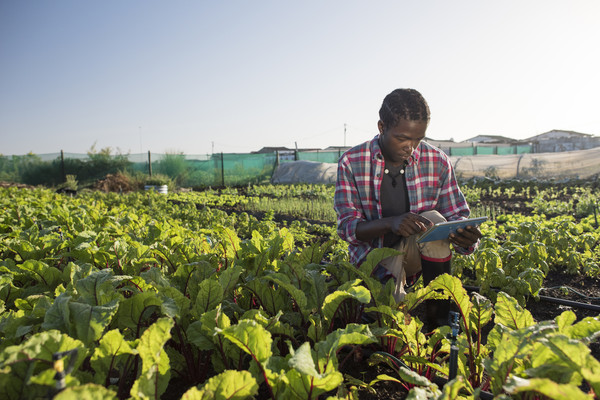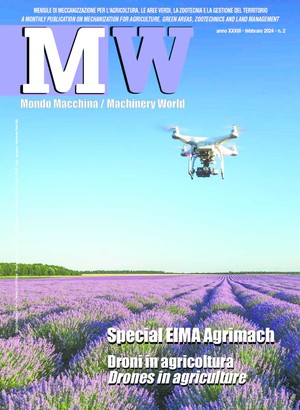
Agri App and financial inclusion, the new paths of development in Africa
The development of applications for electronic devices is a very important support for African farmers and traders. Presentation of goods, their placement on target markets, and the dissemination of information on the most appropriate cultivation techniques are all functions made possible thanks to the "apps", among which Zazu Africa stands out for effectiveness. Thanks to IT media, crowdfunding platforms are also under development. The practical advantages are coupled with the social aspects: information sharing and the creation of community is particularly in tune with the culture of African communities
Perseus Mlambo, who conceived and developed the app Zazu Africa, had long had in mind some villages in Mozambique, many of which were scourged by AIDS, whose farmers were forced at dawn every morning to bring their products by bus to the central market of Mutare, an important urban centre in the eastern region of Zimbabwe. That gave rise to the idea of Zazu Africa: a system that connects small farmers in remote areas with purchasing markets located in major urban centres. The digital revolution represents a particularly important opportunity for Africa, to break down the chronic shortage of physical infrastructure and take advantage of the large pool of young population, much of which consists of digital natives. The protagonists are obviously young people like Mlambo, mostly born in Africa, with experiences of study or work in Europe, often in the field of voluntary work and cooperation, but with strong roots in their societies of origin. In the test phase, the Perseus platform was a system based on WhatsApp and on dedicated logistics services, so it was possible to efficiently present the products available to buyers, combine orders, arrange deliveries. The system has proved a success for the Nottingham Law School student! Thanks to a Funding Accelerator Programme and the interest of a British Angel Investment Fund, the platform - www.zazuafrica.com - is under development and aims to expand beyond the markets currently served (Zimbabwe, Zambia and South Africa). In a recent conversation, Perseus indicated the next targets: Tanzania and, even more ambitiously, the Gulf countries. On the other hand, agriculture and food are among the top users of digital innovation in Africa. AgriApps are by now a well-defined category whose innovative potential is considered disruptive, and not only in Africa. The targets are the 500 million small farmers in the world that today produce exclusively for about 2 billion people, finding themselves at a distance of at least 5 hours from the final market and in precarious infrastructural conditions. Another interesting example is Plantwise: an application launched in Kenya to help farmers in remote areas to improve growing techniques. A mobile app - Factsheets Library - provides advice and connections to resources that can improve the fight against plant diseases. The app networks farmers and plant doctors, and is available on Android smartphones and low-cost tablets (such as the Lenovo A3000). Very similar are the apps developed in Ghana - Farmerline based on mobile voice service technology - and Agrodata in Nigeria. The goal is to facilitate farmers’ access to the consumer market and to actively contribute to food security. It is estimated that 30/40% of crops are lost each year because of pesticides, and that a 1% reduction of these losses would feed millions of people. The issue of economic and social development does not only affect agriculture, but also the mobilization of private resources for specific development projects and the financial inclusion of the poorest population groups, which in Africa often coincide with rural communities. Regarding the collection of funds for development projects, Afrikstart has counted as many as 57 crowdfunding platforms that gathered resources of approximately 127 million USD. Public opinion began to hear about crowdfunding in 2007, but in Africa the dedicated platforms are relatively recent. However, the soil was fertile, because the concept of a community that can develop forms of financial solidarity is an integral part of the culture of the continent, where indigenous systems of solidarity have often supported the development of rural communities and social projects. We are now at the stage where the fundraising process has moved online. And this too seems to be a success. In 2012, the CF platforms made in Africa were only 9, and now - as mentioned above - there are 57. Of these, 21 are located in South Africa, but there is also a substantial number in Nigeria (9). In North Africa there are native platforms in all countries (except Tunisia). Equally active, Kenya, Uganda, Senegal, Ghana, Ivory Coast, Togo and Zimbabwe. African crowdfunding has been able to mobilize significant resources, especially considering the gap of the network infrastructure and the low Internet penetration, and to attract funds on very diverse projects. Wealth Migrate has distinguished itself in the field of health care facilities, and RainFin facilitates the financing of small business and individual loans. Meanwhile, Trevolta took advantage of the funding trips system for its initiative against the poaching of rhinos - Rhinos without Borders - and their relocation to Botswana.
The digital revolution, which is profoundly changing the financial services industry, provides an excellent opportunity to promote financial inclusion of the large African population with low incomes or fallen on hard times, the “missing middle”, which has never made use of banking services, or is underbanked.
An estimated 2 billion adults worldwide do not access banking services (compared to 3.2 billion who access them). Often the problem is the distance from urban centres, and certainly digital banking has promoted the measures of some governments and local regulators that now allow the opening of accounts remotely, facilitated by digital identification systems. Financial inclusion is now recognized as one of the engines of economic development, also in regards to the growth of disposable income for the poorest segments of the world population. In Sub-Saharan Africa, according to the study of the Center for Financial Inclusion at Accion, the poorest segment of the population (40%) will go from a daily income of less than 2 dollars in 2000 to more than 6 dollars estimated for 2020. The increase in income of the poorest populations has led the financial system to a challenge: develop services for the poor population groups, located in remote or rural areas, through low-cost transactional systems and based on digital banking. On this front as well, the most frequent protagonists were African start-ups. Lakt Kenya, for example, is an application designed not only to facilitate payments through smartphones, but also to promote the financial culture and awareness of consumers. The app allows you to plan your savings, spend funds, or collect funds shared with friends and family, and is able to create a schedule for expenditures.
Monetbill from Cameroon is instead an app dedicated using smartphones for the purchases of digital goods and services. All transactions are finalized very simply through the phone number and PIN code. Lastly, this time related to the agricultural sector, we want to mention one of the most interesting experiences in terms of Agri-tech; the one created by Fresh Direct NG. This company has created a model of urban farm in Abuja based on using containers for the transport of goods by ship.
The production capacity of a 20 foot container is equal to that of a cultivated area the size of one and half a football fields. Last November 14 in Cape Town, several of the apps mentioned participated in the AppsAfrica Innovation Award 2016.
The selection was attended by 200 candidates from 25 African countries. However, the challenge for this new generation of Africans remains: after the start-up stage, the challenge of knowing how to keep in Africa the head of the companies that have since become consolidated, and not forget the reasons that gave rise to them, namely, to combat poverty, promote economic development and social inclusion.








